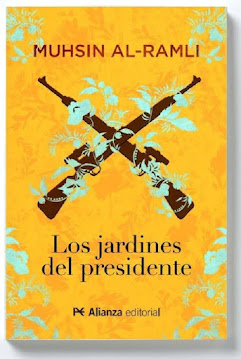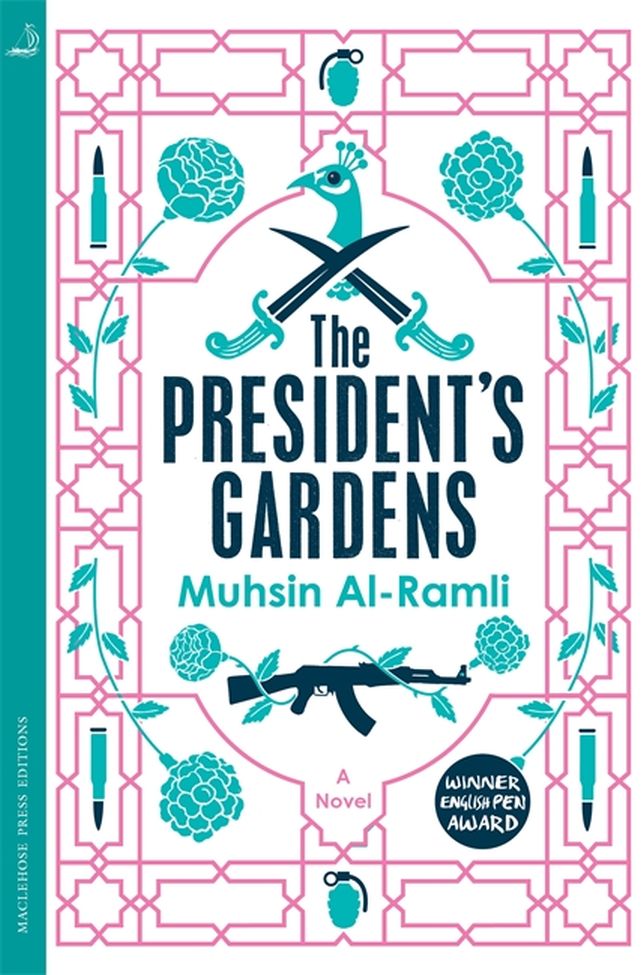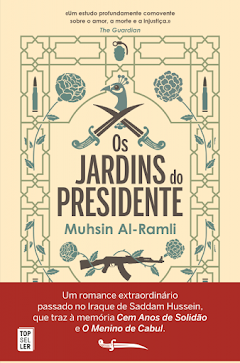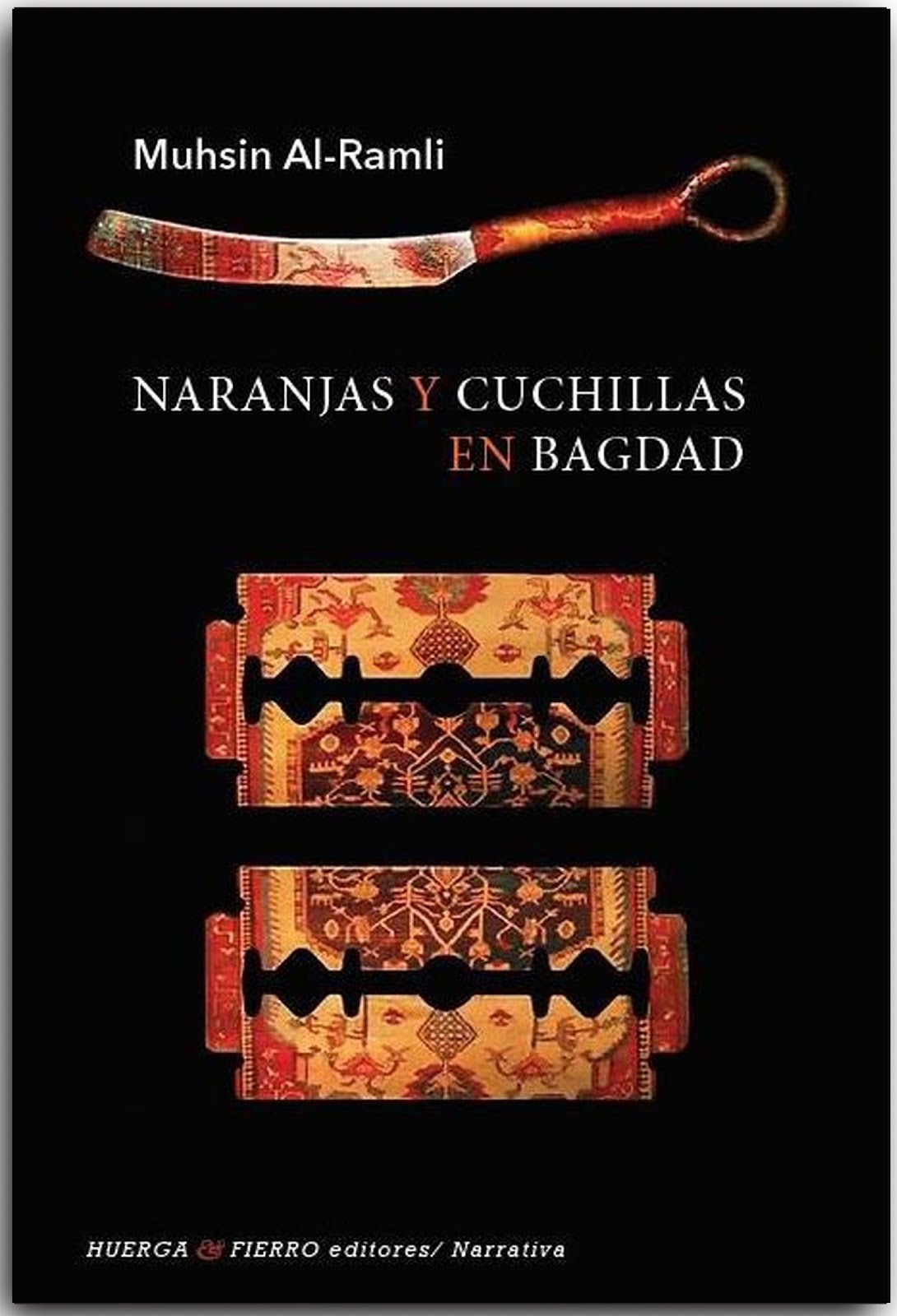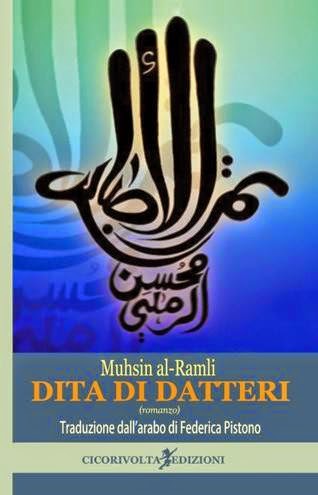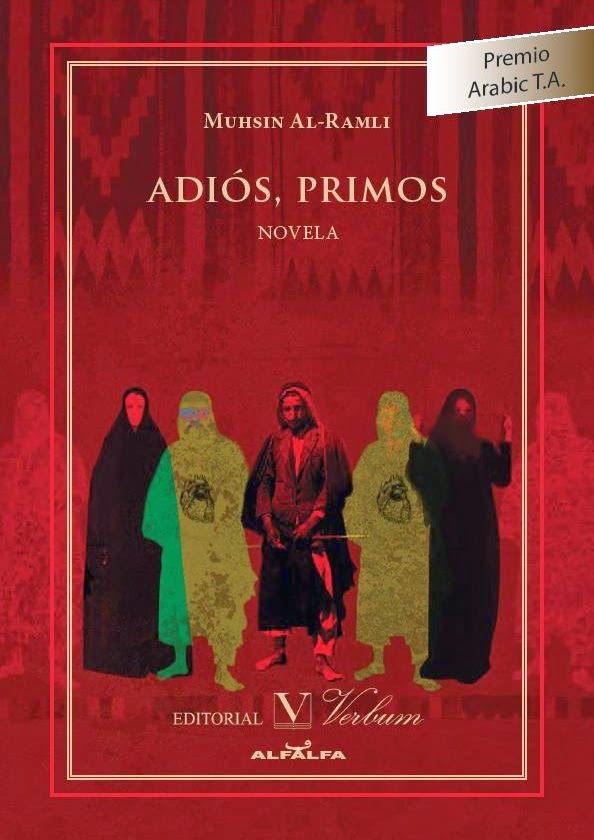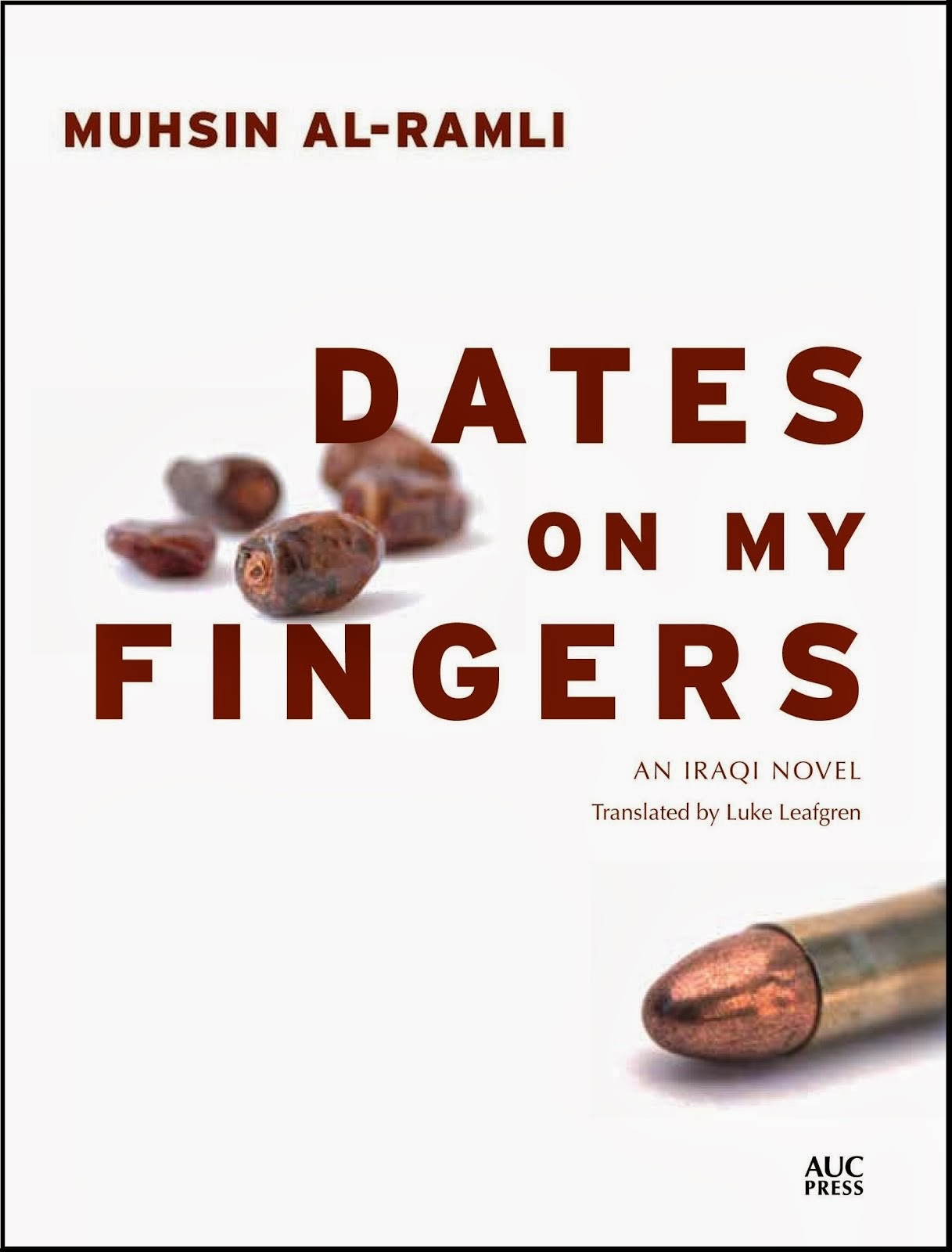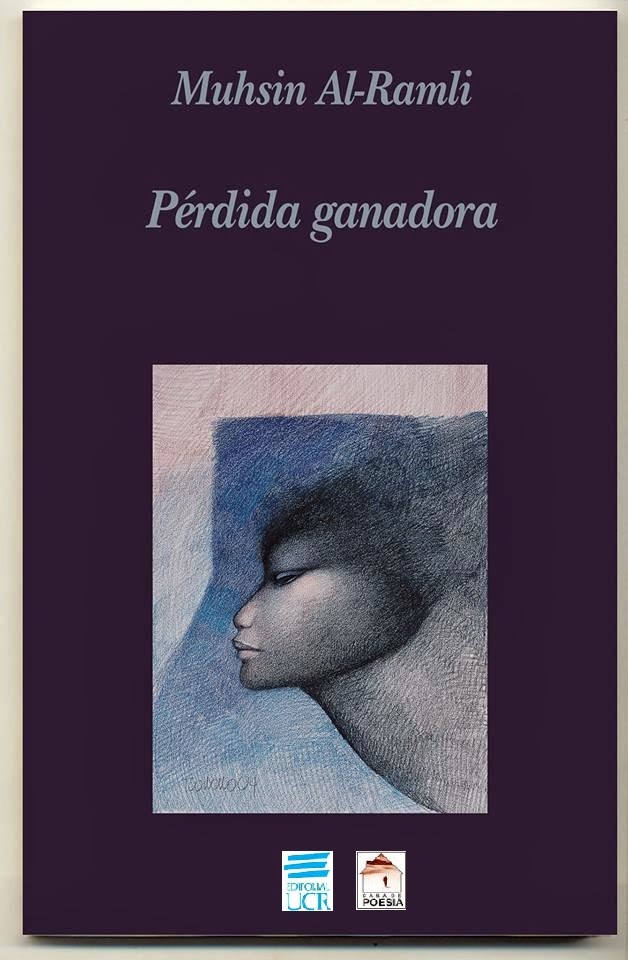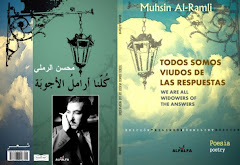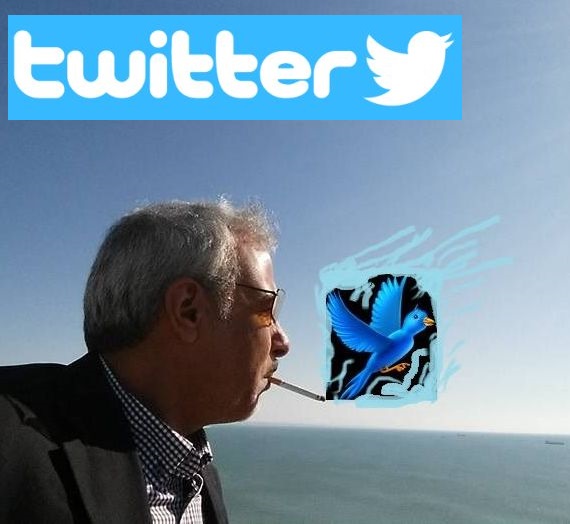«L'Irak est ainsi. C’était et
ce sera un pays troublé»:
confessions d'un poète
Bien qu’il vive en Espagne, Muhsin Al-Ramli raconte dans tous ses romans
l’histoire de sa patrie qu’il a fuie pendant le règne de Saddam Hussein
Valentina Viene
Thursday, 6th July 2017
« Je voulais devenir acteur », explique l’auteur et poète
irakien Muhsin Al-Ramli, « mais je viens d’une famille conservatrice. Mon
père ne l’aurait jamais permis ». À la place, raconte-t-il à Middle East Eye, il a
opté pour le journalisme, puis a commencé à écrire des romans.
Bien qu’Al-Ramli vive
en Espagne depuis 22 ans, sa vie a été affectée par la dictature de Saddam
Hussein. Son frère, Hassan Mutlak, un poète,
a été exécuté en 1990 pour avoir participé à un coup d’État avec une poignée
d’officiers.
« Je voulais devenir acteur, mais je
viens d’une famille conservatrice. Mon père ne
l’aurait jamais permis»
La tentative de Mutlak
de renverser le gouvernement a eu des répercussions sur toute la famille. À
cette époque, Ramli servait à contrecœur dans l’armée, la loi irakienne
exigeant trois ans de service national obligatoire. Refuser aurait été synonyme
d’emprisonnement.
Ses impressions sur la
période qu’il a passée dans l’armée transparaissent régulièrement dans ses
écrits : l’humiliation, le sentiment d’injustice, la peur de parler sans
permission, la perte ; mais aussi la camaraderie, comme celle qui le liait à
son ami Ahmed al-Najafi.
« Il s’est tiré
une balle dans la main devant moi, afin de pouvoir quitter l’armée et retourner
dans sa famille, mais ils l’ont découvert, ils ont su qu’il l’avait fait exprès
et ils l’ont jeté en prison», raconte-t-il.
Jordanie
et Espagne
En 1993, Al-Ramli
s’est rendu en Jordanie pour poursuivre une carrière en journalisme. Mais la
vie n’était pas facile là-bas en raison de son statut d’immigrant et de
périodes de chômage, qui l’ont empêché de planter ses racines.
« Pendant la guerre, il était impossible d’écrire, d’examiner
les faits et, à cause des sanctions contre l’Irak, les choses se sont
aggravées»
«J’ai refusé
d’apprendre l’anglais », confesse Ramli. «Je ne le supportais pas, alors
j’ai appris l’espagnol en raison de la grande littérature produite dans cette
langue. » Apprendre la langue lui a permis d’étudier en Espagne plus tard
et de faire sa vie là-bas.
En 1995, Ramli a
postulé à une université de Madrid et a été accepté. Il est alors parti pour
l’Espagne, où il a poursuivi ses études jusqu’à obtenir un doctorat en
philosophie en 2003. Les premiers temps ont été difficiles. À son arrivée, il
n’avait que 200 dollars (175 euros) en poche et ne parvenait pas à trouver de
travail. Toutefois, avec l’aide de quelques amis, il a réussi à se maintenir à
flot.
Puis, grâce à l’argent
gagné en faisant des traductions, il a créé en 1997 l’un des premiers magazines
en langue arabe de Madrid, Alwah.
« Ce fut aussi
une excuse pour accorder un lectorat à la voix de mon frère, réduite au silence
», précise-t-il.
Une fois
encore à Hassan Mutlak, et ce n’est pas la dernière
Je lui
dirai tout ce que le tyran a fait
entre les
deux rivières, entre les palmiers
et entre
les amis.
Je
décrirai la corde qu’ils ont utilisée pour pendre Hassan Mutlak*,
et la
machinerie qui hache les âmes et la viande irakienne.
Mais j’ai trouvé sa maison vide
à
l’exception de son rocker, tremblant,
entre la
fenêtre et le poème.
Depuis, Ramli a fait du chemin. Il est maintenant professeur d’arabe et
de littérature à l’Université Saint-Louis de Madrid, traducteur de « Don
Quichotte » de l’espagnol vers l’arabe, poète, auteur et scénariste.
Le talent de Ramli a
été reconnu ces dernières années : la traduction de son
roman « Scattered Crumbs » par Yasmeen Hanoosh a remporté
le Prix Arkansas de la traduction
arabe en 2003 et la plupart de ses romans ont été traduits dans
de nombreuses langues étrangères. Certains de ses poèmes et scénarios restent
cependant indisponibles en anglais.
Des têtes
coupées dans des caisses de bananes
Ramli a finalement pu
se rendre en Irak en 2004 suite à l’invasion américaine et à la chute de Saddam
Hussein, puis à nouveau en 2014. Cependant, lors de sa deuxième visite, il n’a
pas pu retourner chez lui à Baiji, dans le nord de l’Irak, car la zone était
sous le contrôle du groupe État islamique (EI). Il n’est pas retourné en Irak
depuis.
Interrogé sur son pays
natal, Ramli affiche ses convictions avec clarté. Pour lui, s’il y a une erreur
qui est souvent commise au sujet de l’Irak aujourd’hui, c’est celle qui
consiste à oublier son passé récent.
En 2006, la famille de
Ramli a été décimée par un terrible événement. Il a reçu un appel d’un proche
en Irak lui disant que neuf caisses de bananes, chacune contenant une tête coupée, avaient
été découvertes près de la maison familiale. « C’était comme un
cauchemar », décrit-il, « mais c’était réel. Ma maison... était
proche de la route principale où les caisses de banane avaient été laissées. La
plupart d’entre eux étaient mes proches, tués le troisième jour du Ramadan
2006. » Cet épisode est raconté dans The President’s Gardens.
« La dictature et les guerres n’ont pas laissé un seul
endroit sûr en Irak ; la mort et la destruction ont affecté chaque être
humain, chaque arbre, chaque pierre»
Cette année-là avait
vu une forte hausse du nombre de soldats américains en Irak, ce qui avait
exacerbé une fracture confessionnelle déjà complexe. « Les bananes ne sont
pas des fruits irakiens », explique Ramli, « l’incident était
bizarre, nouveau, étranger... Cela s’est produit en parallèle de l’invasion des
forces étrangères et avec l’introduction de nombreuses idées, biens et intérêts
étrangers, entre autres choses. »
À ce stade, même les
villages éloignés qui étaient restés en grande partie paisibles pendant les
années agitées ne pouvaient être protégés, souligne-t-il. « La dictature
et les guerres n’ont pas laissé un seul endroit sûr en Irak ; la mort et
la destruction ont affecté chaque être humain, chaque arbre, chaque
pierre.»
Extrait du poème « Non à libérer l’Irak
de moi»
Eh, vous,
les messieurs de la guerre
Écoutez-moi
:
Non à la
fête des militaires sur le toit de ma maison.
Non au
bourreau que vous avez proposé
ou allez
proposer.
Non aux
bombes de votre liberté qui tombent sur les têtes de mon peuple
Non à
libérer l’Irak de moi ou moi de lui.
Je suis
l’Irak.
Il est
facile de perdre le fil
Avec tous les bouleversements qui ont suivi l’invasion des États-Unis,
beaucoup se sont demandé, et se demandent encore, si la vie était meilleure
sous Saddam et si, après tout, le sang versé était nécessaire.
« Pendant la guerre, il était impossible d’écrire, d’examiner les
faits et, à cause des sanctions contre l’Irak, les choses se sont
aggravées », explique-t-il.
« Ce qui se passe en Irak change son histoire jour après jour, il
est donc facile de perdre le fil. Beaucoup de ces jeunes Irakiens qui
rejoignent l’EI ignorent comment nous en sommes arrivés là. »
Ramli dit ressentir le besoin de souligner qu’il était facile d’oublier
que Saddam était un criminel et de demander si l’Irak avait appris de ses
souffrances. C’est ainsi que The President’s
Gardens a été conçu, un récit qui couvre les 50 dernières
années de l’histoire irakienne.
« Ce qui se passe en Irak change son histoire jour après
jour, il est donc facile de perdre le fil »
Dans son dernier
livre, Ramli met en lumière l’histoire non racontée des prisonniers de guerre
irakiens durant la guerre Irak-Iran. « Je leur ai
consacré deux ou trois chapitres », raconte l’auteur. « J’ai parlé de
mes rencontres avec les prisonniers revenus d’Iran. Ils ont partagé des
informations sur leurs souffrances. Peu de livres ont mis en évidence la
situation des prisonniers lors de la guerre Irak-Iran dans la littérature arabe
et le roman irakien. »
Liens avec
la patrie
Ramli continue
d’écrire sur l’Irak avec une distance purement géographique, car son cœur est
encore en Irak. Ayant connu et vu la guerre plus que la paix dans son pays, il
n’est pas optimiste quant à l’avenir de l’Irak.
S’il y a un aspect qui
manque dans ses écrits, c’est une discussion sur le confessionnalisme. «
Personnellement, je n’ai jamais connu le confessionnalisme... Mon premier
instituteur à l’école primaire était un yazidi de Sinjar, il était un ami de
père, un homme religieux, et le fils de mon instituteur était mon ami... Nous avions un chevrier kurde dans notre
famille, et nous l’aimions beaucoup », se souvient-il.
« Le
confessionnalisme a explosé et a été exploité d’abord par le dictateur, puis
avec l’arrivée des Américains, et il s’est désormais répandu dans toute la
région. C’est malheureux, arriéré et idiot, et c’est un jeu sale auquel je
refuse de jouer parce qu’il a été mis en place pour servir des intérêts cupides
au détriment des êtres humains », affirme Ramli.
« C’est ça l’Irak : c’était et ce
sera toujours un pays troublé, chaud, souffrant, beau, stupéfiant et vibrant»
Tout en faisant état de crimes et de brutalités, The President’s Gardens intègre
l’humour, l’amour et des moments profondément touchants. « Je crois que
l’Irak a toujours été ainsi et restera tumultueux et instable, et que des
changements radicaux se produiront toujours. Ces caractéristiques sont devenues
une partie intégrale de sa nature et de son être tout au long de l’histoire. »
« C’est ça l’Irak », conclut-il. « C’était et ce sera
toujours un pays troublé, chaud, souffrant, beau, stupéfiant et vibrant.»
*Traduit de l'anglais (original) par Monique
Gire.































